PAUL MUITE HAS NO MORAL FIBRE TO BASH THE KIBAKI GOVERNMENT
Heads to roll over Goldenberg scandal
Deremo Maiko
No single financial event has had far-reaching impact on the Kenyan economy than the hydra-headed Goldenberg Scandal of 1990 to 1993. While the amounts that were involved are yet to be determined, Kenyans are still counting the cost. But what cannot be gainsaid is that the monies shelled out are widely believed to have bankrolled an extremely liquid election campaign by former ruling party Kenya African National Union (KANU) in 1992.
Resolution of the matter is key to unlocking billions in multilateral and bilateral donor funds that have largely been withheld as the case, now terminated, was bogged down in the court process. It is, however, expected to bring major embarrassment to players some of whom are in the ruling National Rainbow Coalition (NARC).
In its basic form, Goldenberg, now subject of a judicial commission of inquiry, involved export compensation for fake diamond and gold transactions. In one facet alone, some Sh13.5 billion ($180 million) was shelled out to Goldenberg International from the Central Bank of Kenya, purportedly to purchase the accruing foreign exchange. The logic was simple: Proprietors of the firm were tapping into the black mineral market and thus would receive the 20 per cent non-traditional export compensation. But strangely, without going through Parliament, the compensation for Goldenberg was jerked up by 15 per cent.
The history of the company, whose directors were Kamlesh Pattni and former chief of the Directorate of Security Intelligence Mr James Kanyottu, is so simple yet bizarre. In 1990, Pattni then a back street jeweler, approached the government with a proposal on how to export the commodities, then largely traded as contraband from the Great Lakes Region.
On the surface, the government had reason to buy the ambitious scheme. Tourism dollar was on the wane, resulting in severe foreign exchange shortage and an acute balance of payments problem. The main reason behind the crisis was political ferment associated with the clamour for pluralism and the resultant tribal clashes. Armed with unverified claims of a diamond and gold workshop, the scheme was given a go-ahead.
This was despite the discontent expressed in Parliament as early as 1991. A Permanent Secretary Mr Joseph Magari was summarily dismissed in November 1991, after endorsing recommendation from his officers that the compensation be stopped or be extended to other exporters apart from Mr Pattni; he has since been hired again by NARC in the same capacity and his hand is seen in the formation of the commission.
While compensation was the most visible part of the scam, other things happened simultaneously. Political banks mainly associated with Asians popped up and borrowed heavily from Central Bank of Kenya (CBK). They would then lend the money to CBK and make windfall profit as the regulator sought to mop up the money, which it had printed to pay the dubious compensation and to finance the banks' overdrafts.
The results were devastating. Money supply went up 35 per cent in 1993. Inflation at one point galloped at 105 per cent. By the time Finance Minister Musalia Mudavadi was pressurised by the International Monetary Fund and World Bank to put a cap on the payments, government was grappling with the impact in the money markets.
To mop up the money, it had to issue Treasury bills ranging from one month to three months. That, on its own, meant banks were not interested in lending the private economy. Interest rates stayed up in the markets and the private sector was crowded out by government. Banks remain highly exposed to Treasury bill income to now.
The Treasury bills' yield remained in the double-digit zone until last year - when former CBK Governor Nahashon Nyagah's effort to shift borrowing to longer term bonds started bearing fruit - and the public debt ballooned on to the current over Sh600 billion ($7.8 billion).
In the past decade, absolute poverty level, in most part due to the transactions surrounding Goldenberg, rose from 46 per cent to nearly 60 per cent.
Economic growth in the aftermath has stagnated. While in between 1993 and 1997 decent growth was recorded largely due to inflows from the crumbling neighbouring states of Somalia, Rwanda and Ethiopia, since then things have changed. IMF in 1997 cut its aid after one year of resumption as the government dilly dallied on prosecuting Goldenberg players. Other donors fled and would only return briefly in 2000.
Economic growth in 2000 hit a nadir of negative 0.2 per cent, the first time in history the Kenyan economy had shrunk.
The current government, coming on a reform platform, is thus keen to get IMF and other donors back as it grapples with Sh67 billion financial deficit, and Goldenberg resolution is seen as important in this. With all the negative impact it had, the Scandal has also shaped the fiscal and monetary sectors for the good. First, government is only allowed to borrow only six per cent of its last audited expenditure from CBK. This has meant ruling politicians cannot print money using the CBK overdraft and instead have had to contend with using corrupt tendering, land grabbing and commodity dumping in the domestic market to finance their campaigns.
Extremely punitive rates are charged to commercial banks who chose to borrow from CBK, thus confining them to the inter-bank market. Five banks involved in the scandalous CBK overdraft saga of the Goldenberg era were closed after 1993. Generally, the banking system has been more stable. But even as the government seeks to get the culprits of the Scandal, embarrassment lies ahead. Former Finance Minister of the time Prof George Saitoti is an important player in the government, occupying the crucial docket of education. Vice President Kijana Wamalwa once when heading a Parliamentary committee is on record recommending that Mr Pattin should get more payment arising from the scheme.
The opposition is neither clean. A leading light legislator Paul Muite is alleged to have been paid Sh20 million ($259,740) by Mr Pattni to keep quiet. Founder of the opposition the late Jaramogi Odinga admitted receiving Sh2 million. A judge of the High Court Samuel Oguk has had to resign over alleged corruption while handling the matter. He threatened to reveal the role of Gideon Moi, a son of the former President, in the saga. Mr Moi's threat to sue over the allegations was never made good for unknown reason.
While IMF is keen to resume aid and to have the matter laid to rest, it is clearly a Pandora's box. But it's resolution will be crucial in getting Kenya from the top corruption roll call and getting the economy on track with donor support.BOYCOTT FOR DAILY NATION and STANDARD ON
Subscribe to:
Post Comments (Atom)



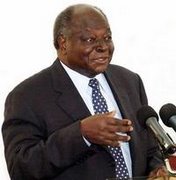





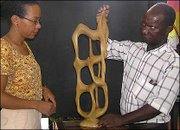











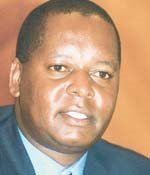
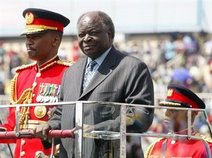
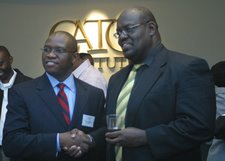





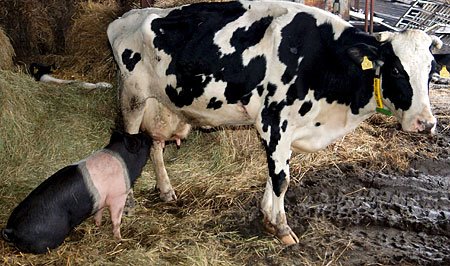





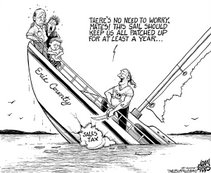
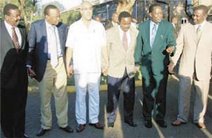
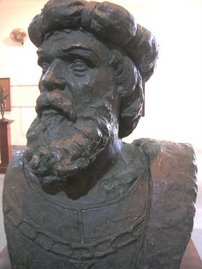

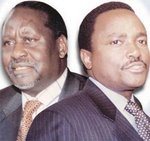

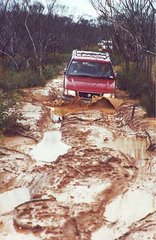
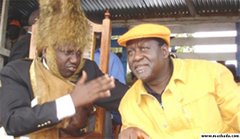



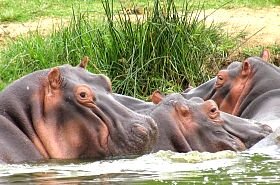

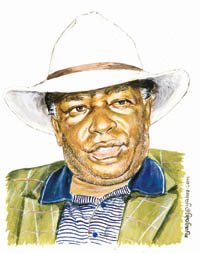

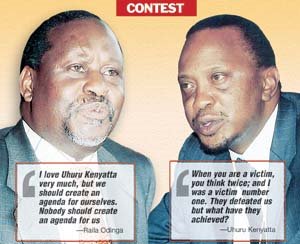
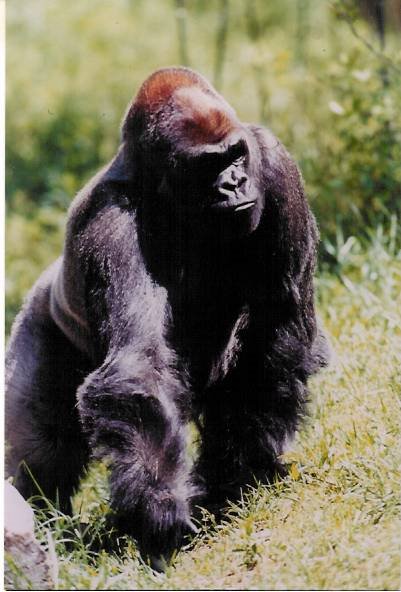
No comments:
Post a Comment